Kashmir’s nomadic tribes of Gujjar and Bakarwal: Finding identity among the unidentified
For centuries tribes have grazed their livestock on the lush pastures of Jammu and Kashmir. Now their religion and way of life are under attack, writes Zafar Dar
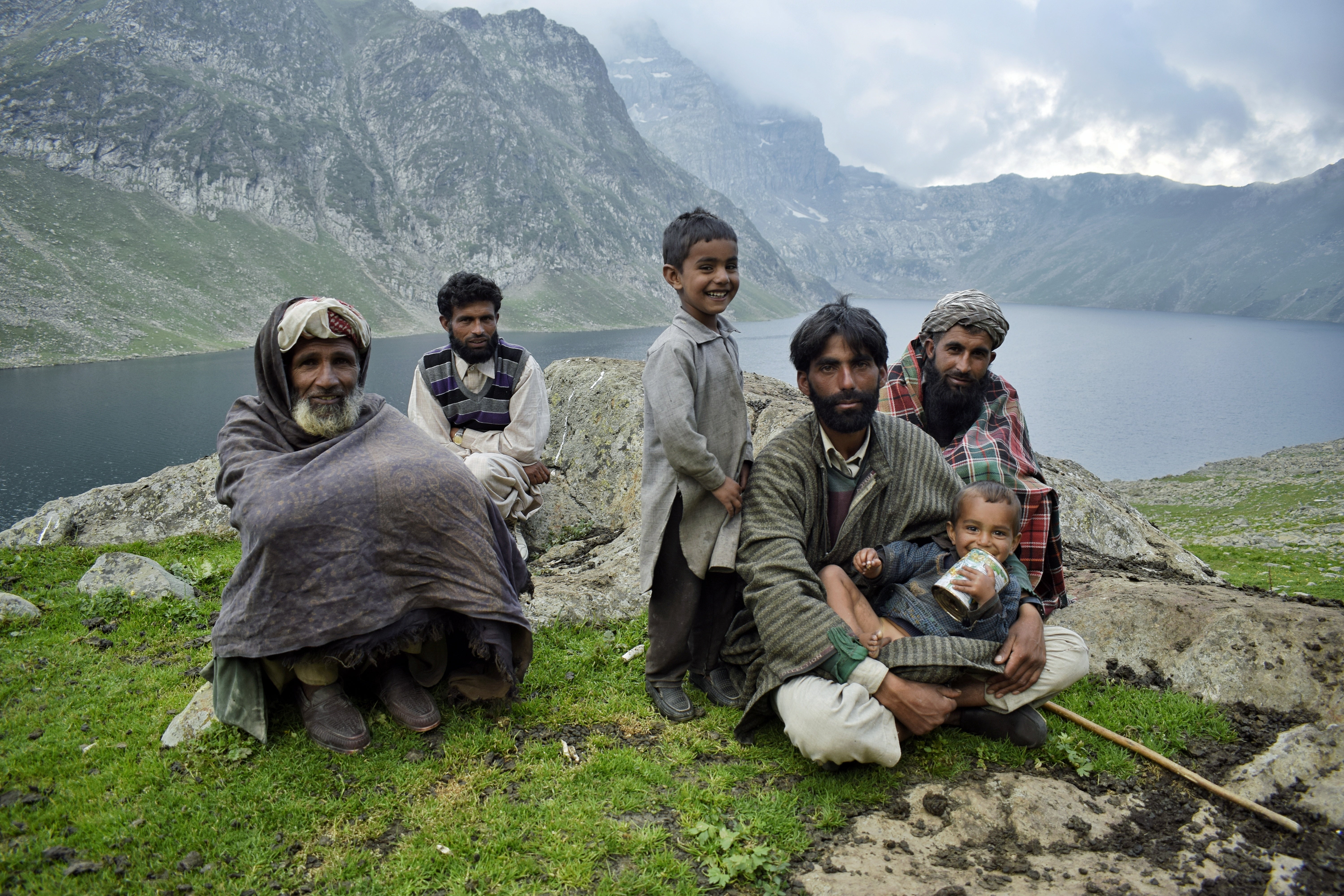
Mohammad Yousuf Khattana – a septuagenarian from Lidroo village in south Kashmir’s picturesque tourist-spot of Pahalgam – gazes over his demolished huts from a tent.
Khattana belongs to Jammu and Kashmir’s tribal community of Gujjar and Bakarwal. In November 2020, a calamity hit this community after the state administration transferred 30,000 acres of land to the Industries and Commerce department for investment. An anti-encroachment drive led by the state’s Forest Department demolished the area’s makeshift huts, made of mud and wooden logs. These huts, belonging to Khattana and several others, were used to brave the winter’s sub-zero temperatures.
Recalling the painful events, Khattana says: “They were around 100 to 150 men, mainly from Pahalgam Development Authority and Wildlife Department, accompanied by police and other officials from the Revenue Department. Without any prior notice, we were told to vacate the huts, which were then razed to the ground.
“These huts housed my family of six and also the livestock. Now we have been forced to live in a tent made of ragged tarpaulin, which is barely effective against the cold, and our livestock is completely shelterless.”
These tribal families have been living in this village for six or seven generations and such an attack is completely unprecedented.
Who are the Gujjars and Bakarwals?
The constitution of Jammu and Kashmir identified 12 tribal communities as the “scheduled tribes” (STs). All 12 were enumerated officially for the first time during the 2001 census: the Gujjars and Bakarwals had a population of 763,806 and 60,724 respectively. Together they constitute third largest ethnic group in Jammu and Kashmir.
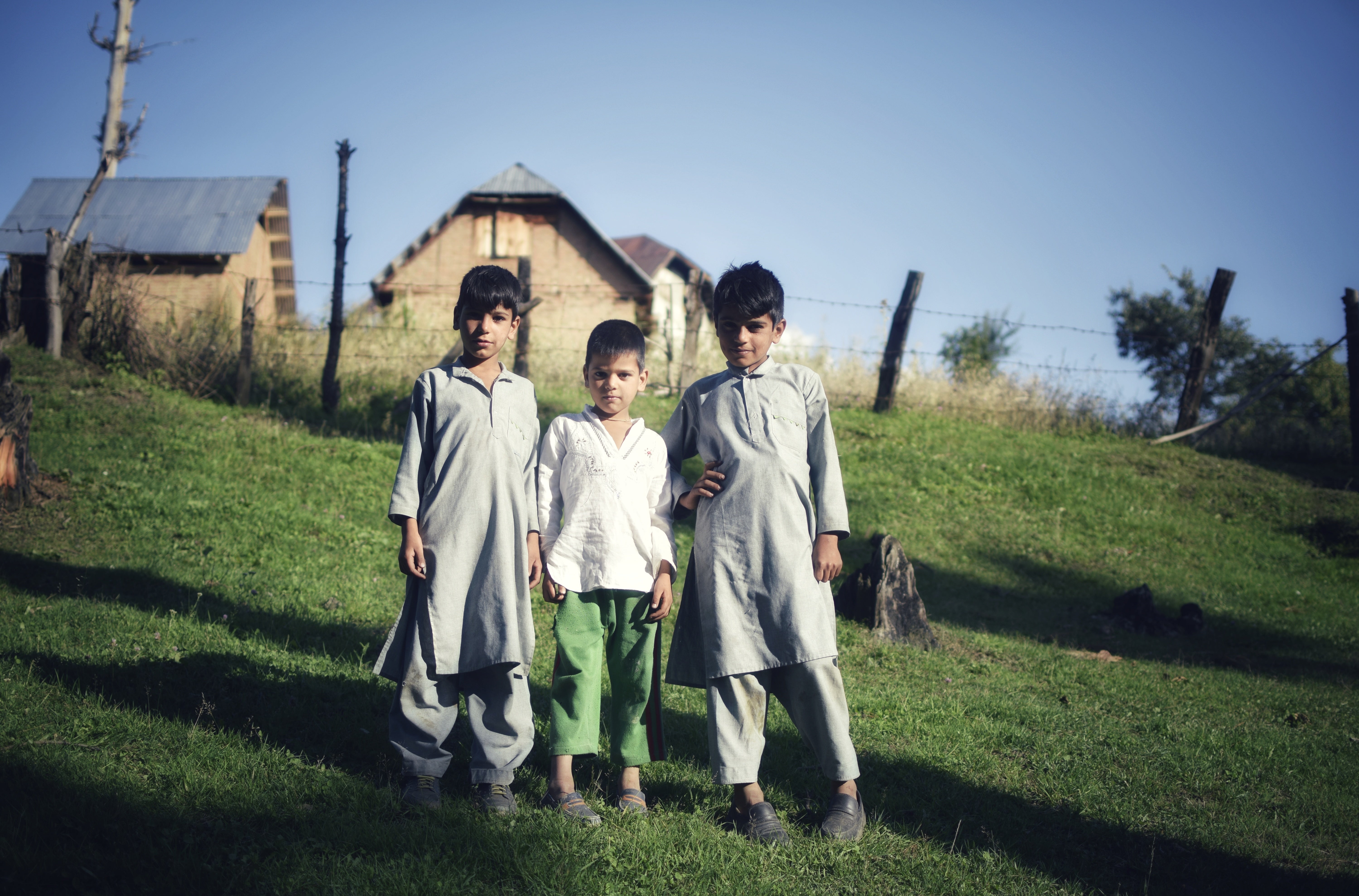
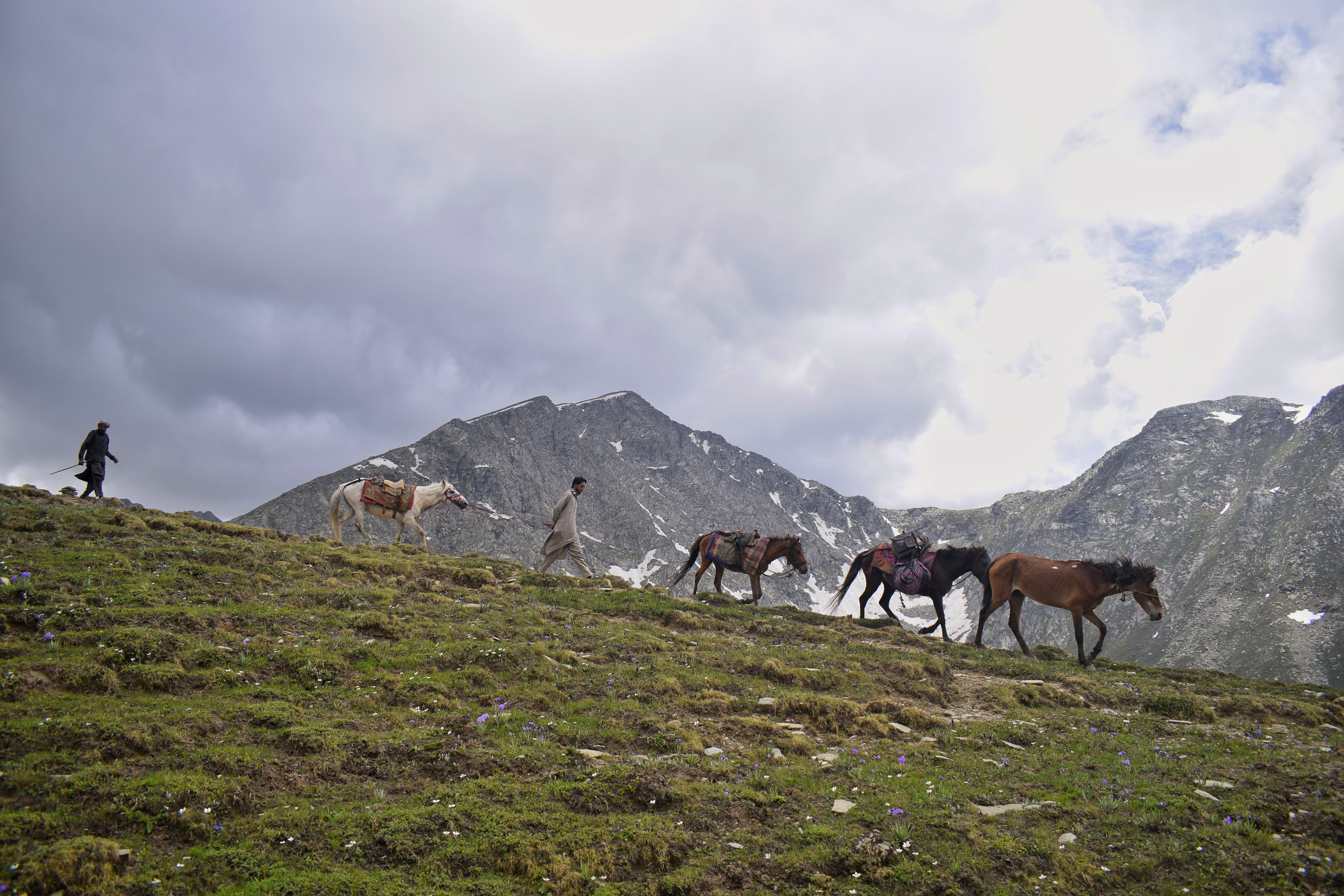
The Gujjars and Bakarwals are the nomadic pastoralists of Jammu and Kashmir, who have been travelling for centuries between summer pastures in Kashmir and winter grazing grounds in the lowland plains of Jammu and the adjacent areas, herding their livestock.
In the past decade, however, things have been changing fast because of social, economic, communal and political pressures that appear to be concerted attacks on the community.
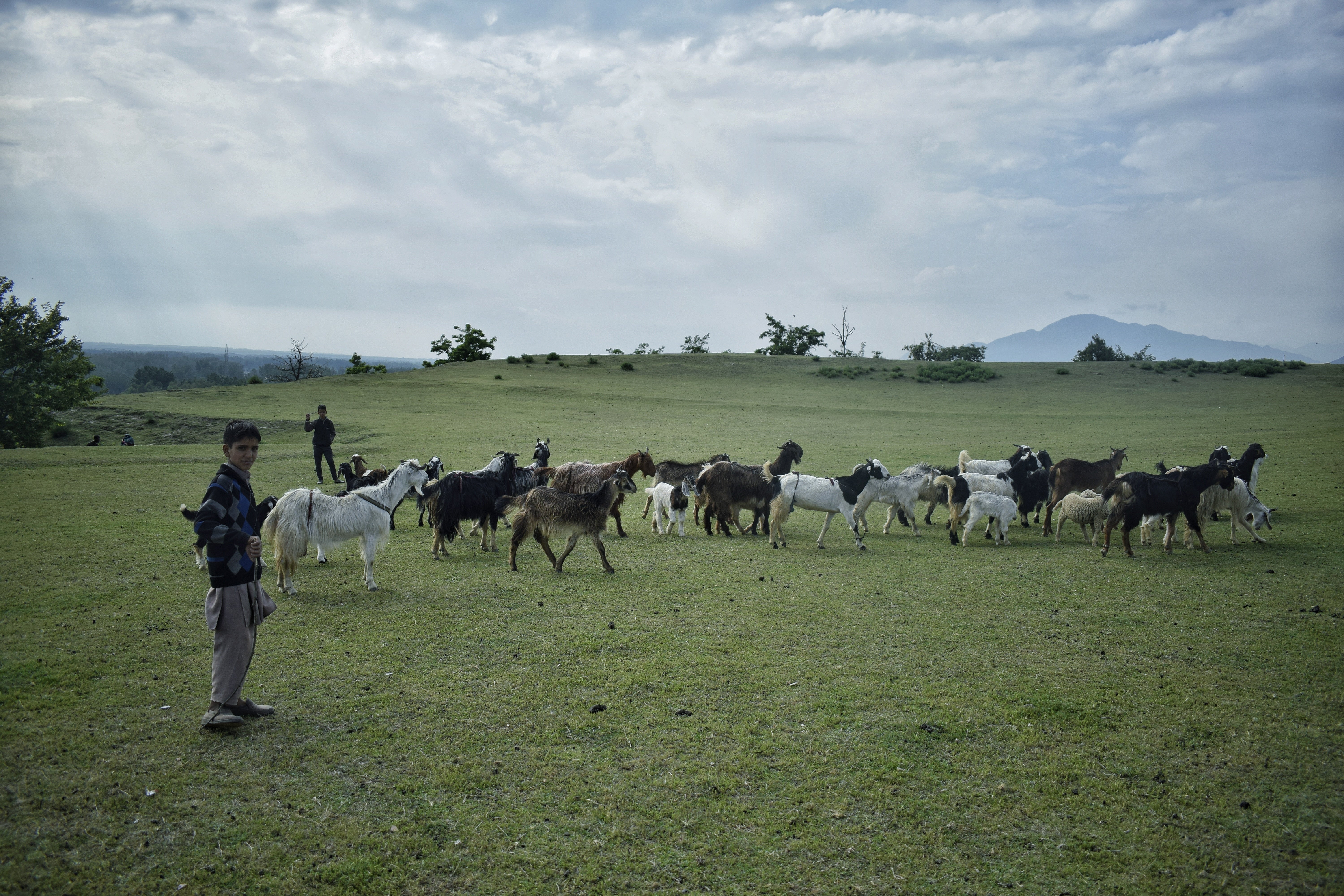
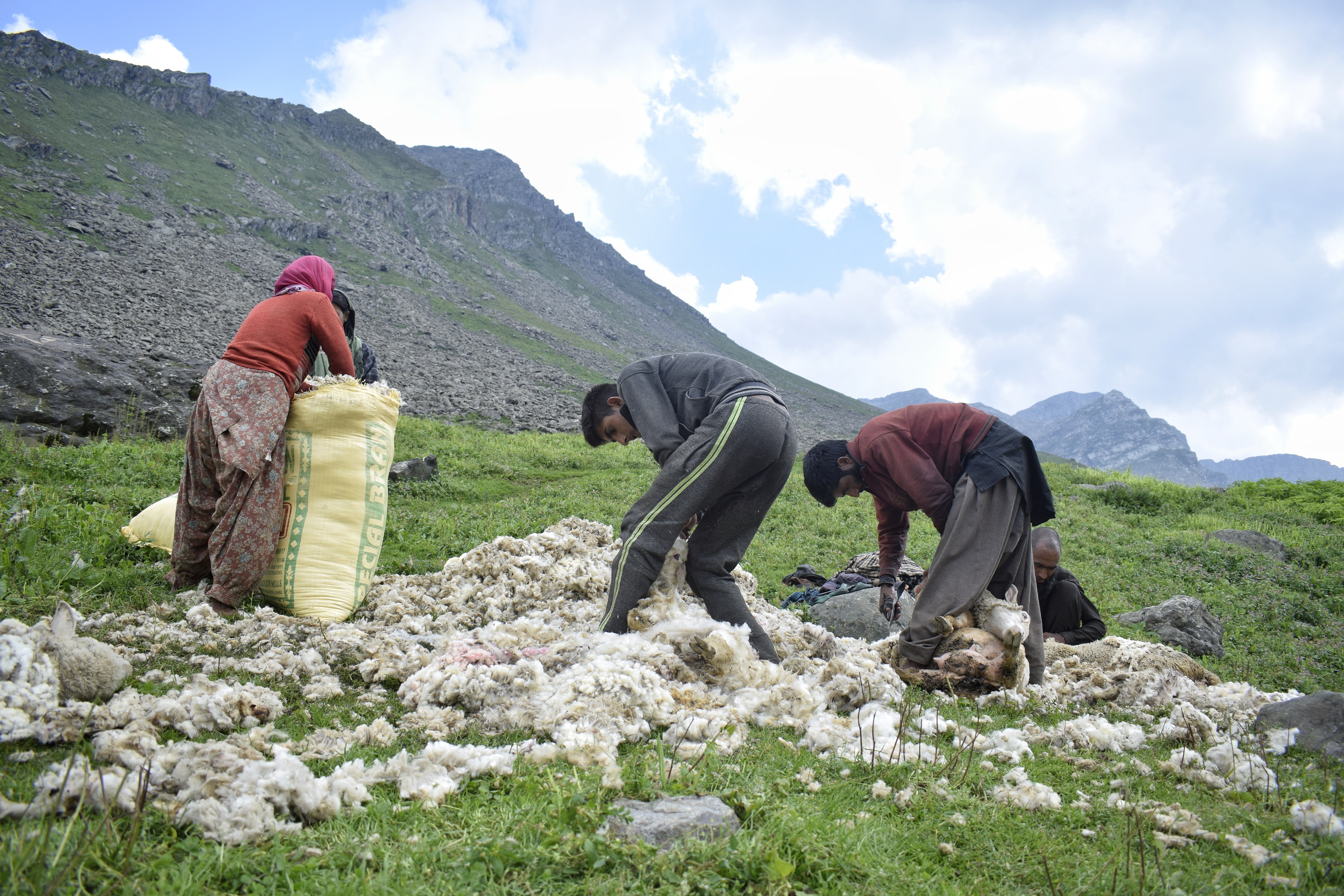
Community under attack
A large number of traditional migratory routes have fallen foul of road-widening schemes: the caravans have to share the route with trucks and other vehicles, which has not only endangered their lives but also that of their livestock.
As a result they have been forced to look for alternative routes, which are no less risky owing to the difficult terrain through which they have to pass.
The city administrations of several regions of Jammu and Kashmir are also closing in on their traditional pastures on the pretext of “encroachment of state land”, and have started fencing off the areas, cutting the access of Gujjars and Bakarwals to their former grazing lands and routes.
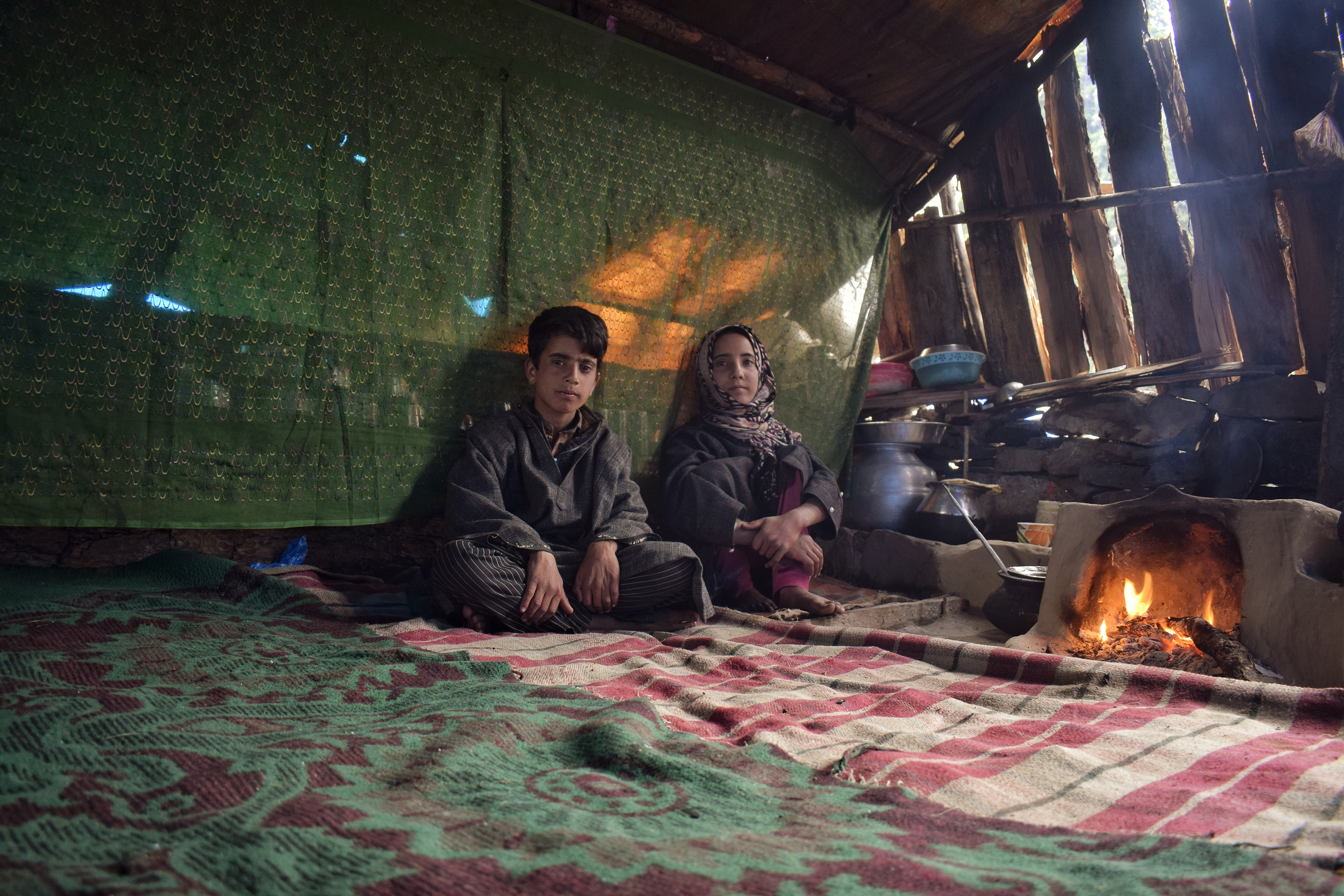
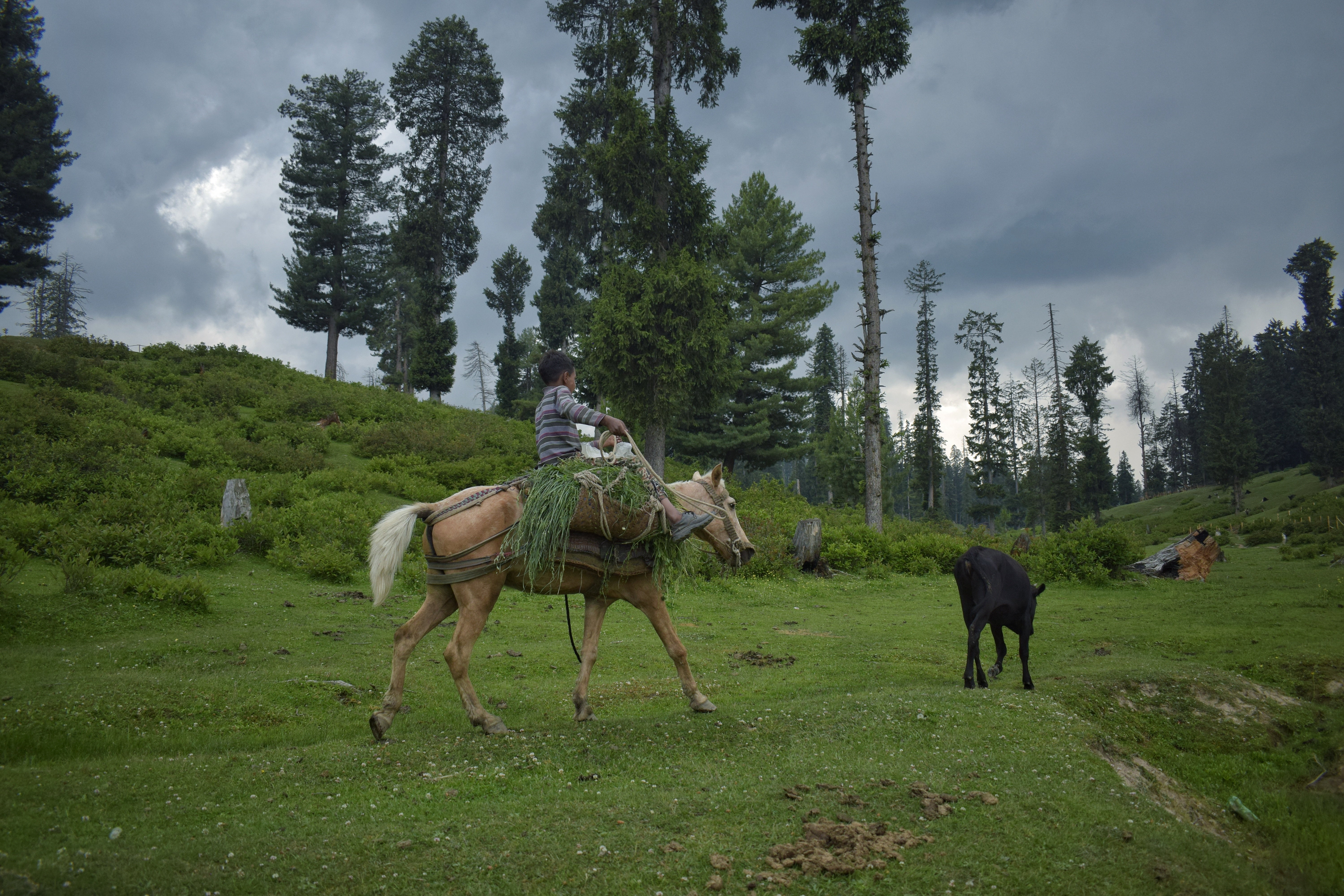
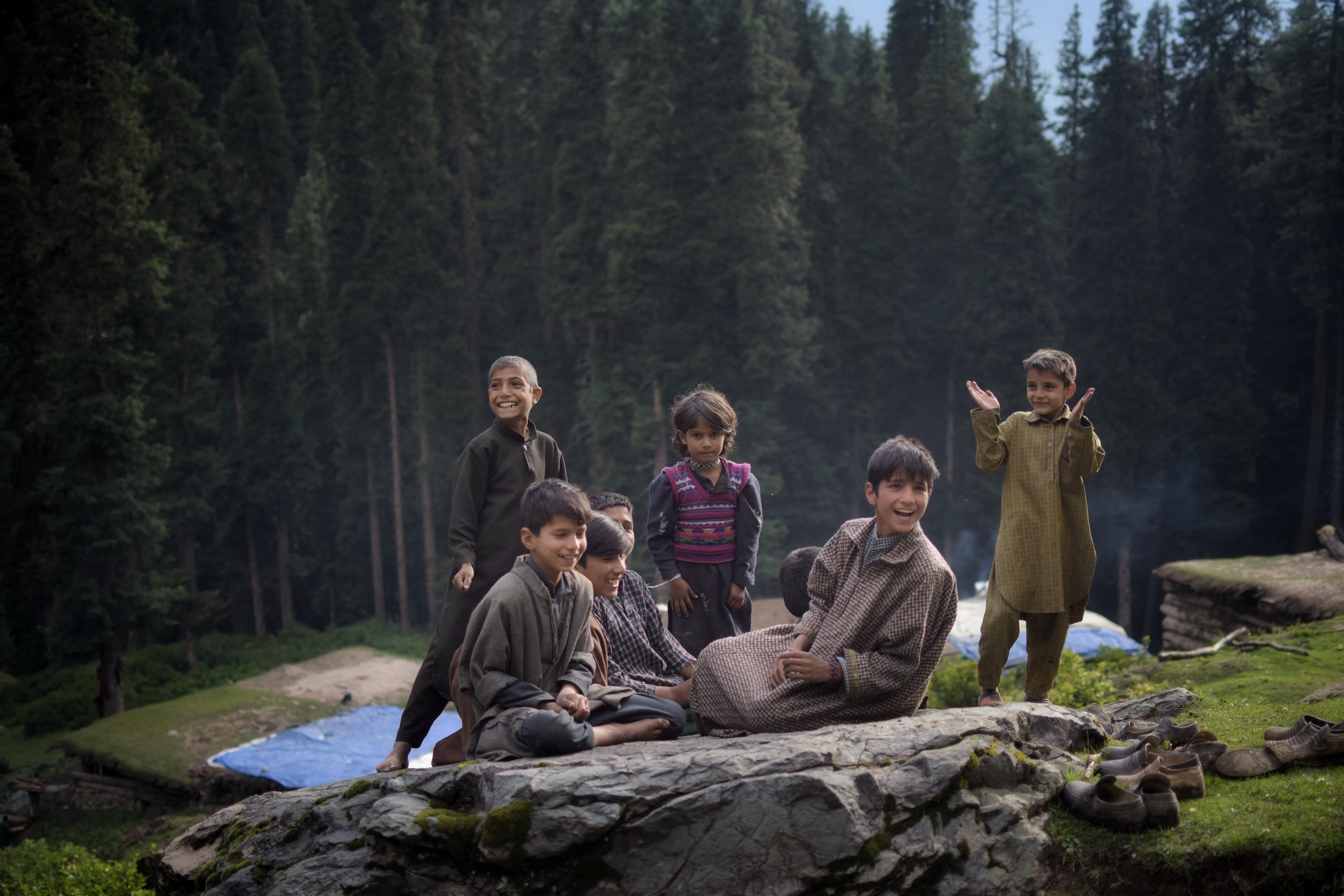
Asif Ahmad, a spokesman for Gujjar and Bakarwal communities in Shopian, says: “We aren’t doing anything illegal. We don’t take part in ‘encroachment’, nor in the smuggling of forest wood. We consider ourselves as custodians of these forests and pasture lands. It is quite unfortunate that our community is still treated unjustly.”
The changes have forced them to shun their nomadic lifestyle and adopt a more sedentary way of life: more than 200,000 people from the community have already built permanent settlements and many others have left the ancestral job of cattle herding and are now looking either for semi-skilled labour or eking out their subsistence by begging.
Another factor that has put fear in the hearts of this already marginalised community has been the communal attacks directed against them.
The majority of the community are Muslims, and they have been victims of communally-charged attacks, mostly in the plains of Jammu, which are the winter grazing grounds of their cattle. These attacks have taken an ugly turn since the Hindu nationalist BJP came to power nationally.
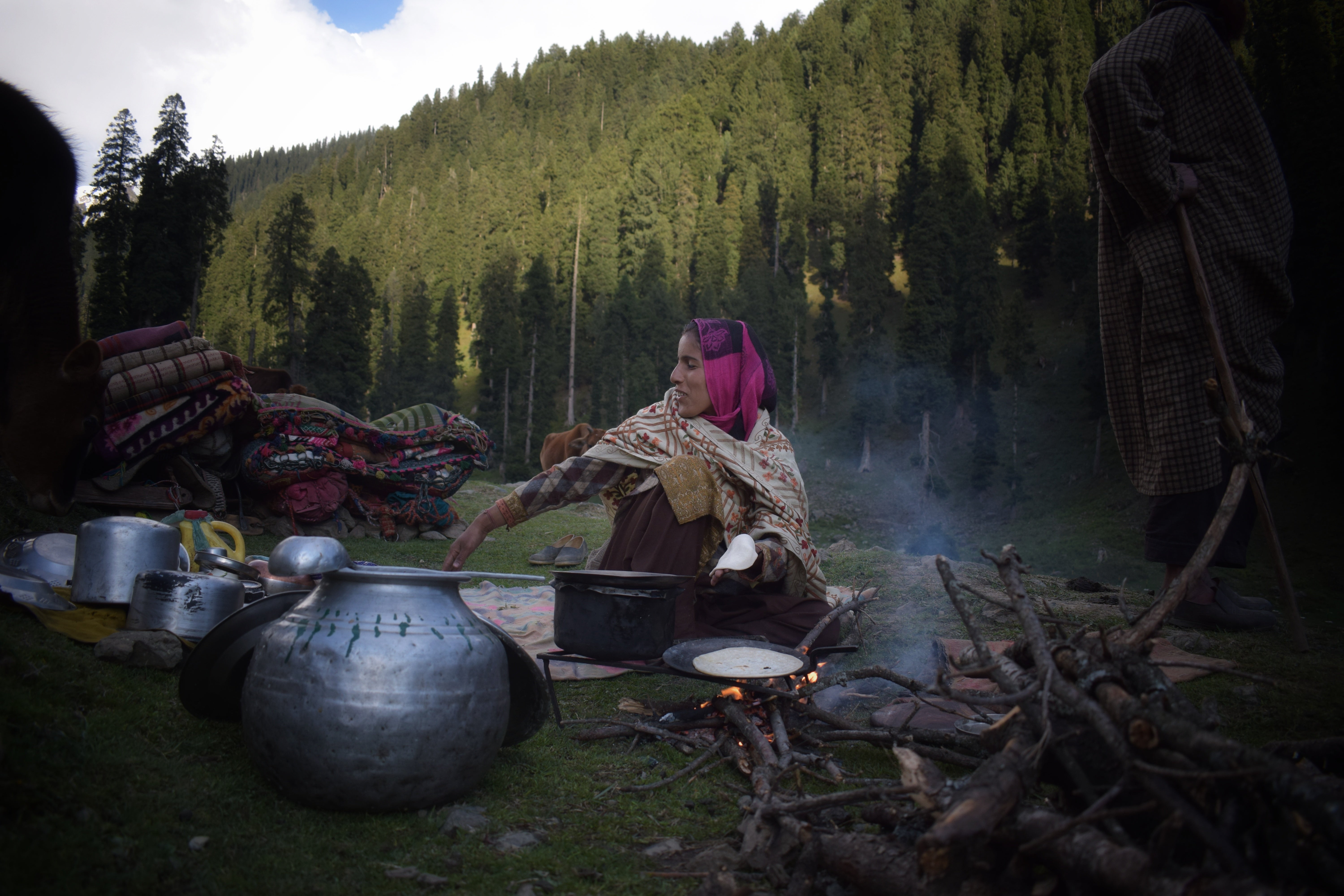
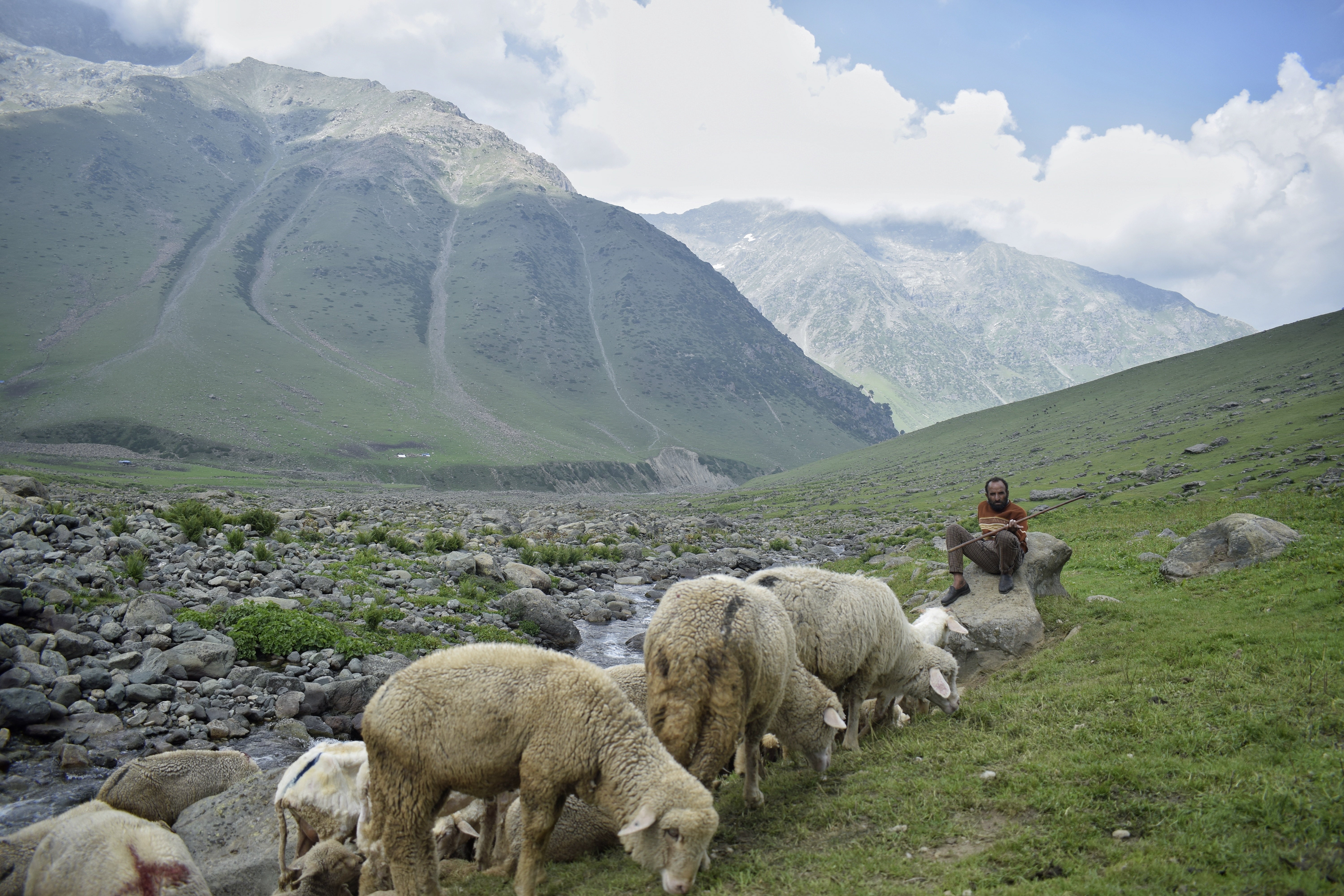
In January 2018 an eight-years old nomadic girl was kidnapped while she was grazing her cattle. Her bruised and mutilated body was found in the woods a week later. It came to light that she was gang raped for days inside a temple by the members of Hindu community. It was alleged that this act was carried out to spread terror among the tribal people.
The grisly incident sparked public outrage across the spectrum but very little was done to allay the fears of this beleaguered community.
The state-led eviction drive has had the deepest impact on the collective psyche of this community. The state Forest Department is running roughshod over the rights of these traditional forest-dwellers which are guaranteed under the Forest Rights Act, 2006.
Forest Rights Act
After the scrapping of Article 370 by the central government of India in August 2019, the Forest Rights Act was extended to the Union Territory of Jammu and Kashmir.
The act gives the traditional forest dwellers their rights to access, manage and govern forest lands and resources within village boundaries. It also, in theory, protects these tribes from forced displacement, provides for grazing rights and access to water resources.
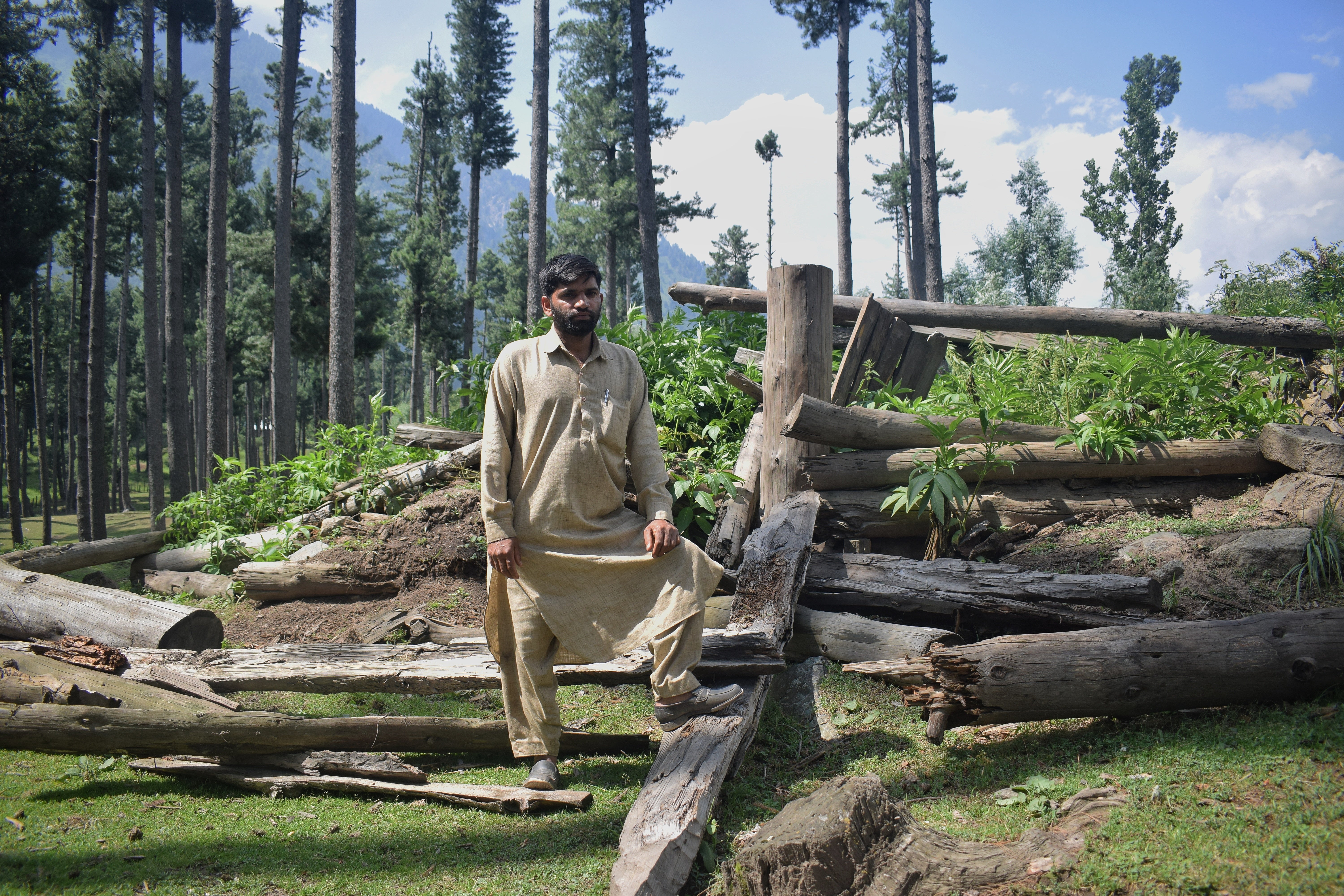
But the act is far from being implemented on the ground in Jammu and Kashmir. Several incidents have been reported since November 2020 when the forest department and state police stormed the areas inhabited by the tribes, demolished their huts, and in case of any resistance offered by the community, resorted to thrashing their men along with their elderly and women as seen in places such as Lidroo village in Pahalgam, Zampathri in the Shopian district, and Pulwama.
Abdul Aziz Khattana and Bashir Ahmad, from Lidroo, saw their huts being demolished on the same day as that of Mohammad Yousuf Khattana’s.
“We have been living here from many generations. These huts were built some 45 years ago. Then one day, all of a sudden, the employees from forest department came and razed these structures to ground,” says Abdul Aziz Khattana.
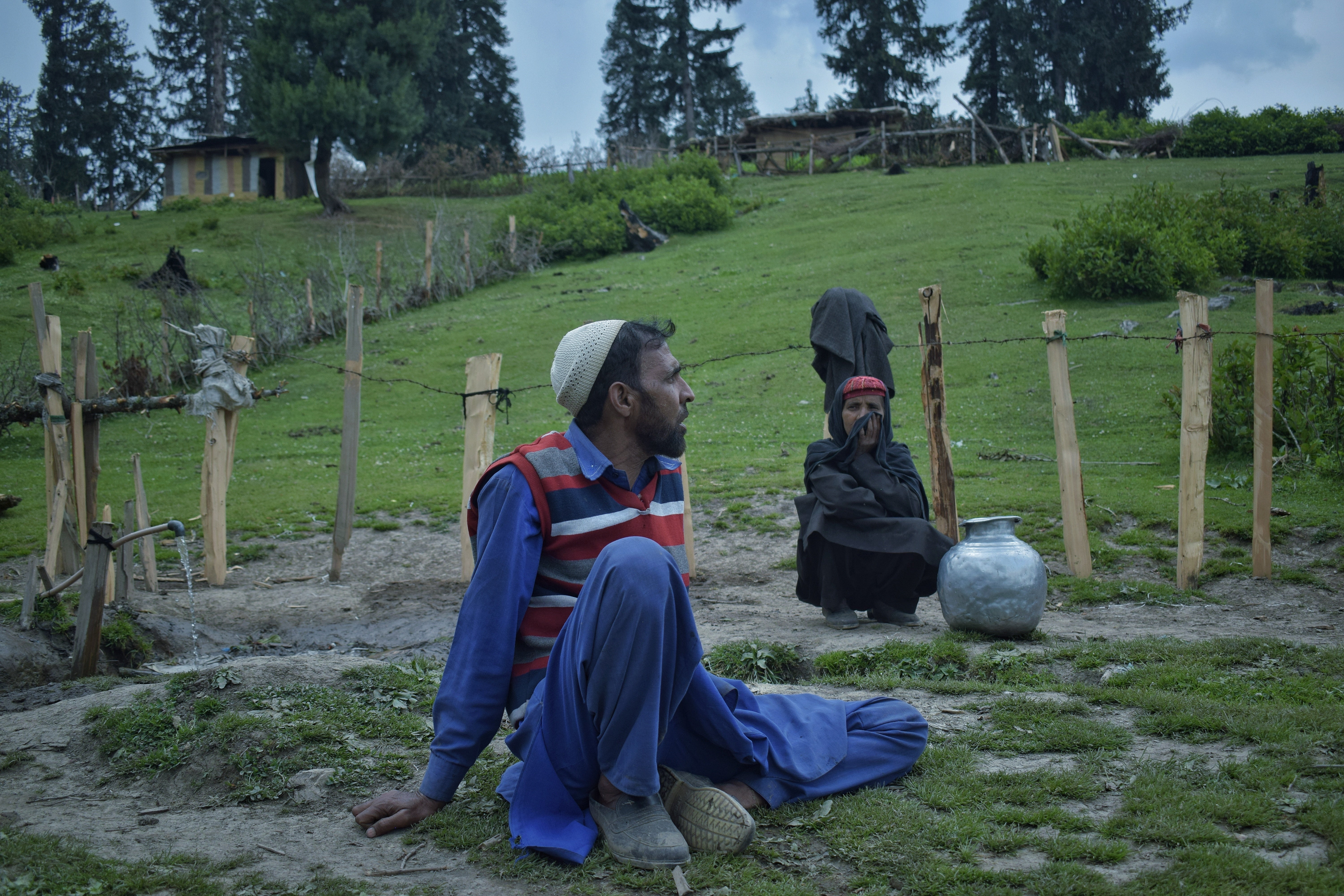
“Apart from demolishing these huts, a few men from the Forest Department threatened us not to harvest walnuts from the trees in our vicinity. Our forefathers had planted these trees and we had been harvesting them ever since but now we were told to go through a bidding process in order to harvest these trees,” adds Bashir Ahmad.
In Zampathri village a similar demolition-drive by the Forest Department turned into a violent clash between them and the Gujjar and Bararwal community. On 24 May this year, in a flagrant violation of Covid protocols, forest employees, in their hundreds, descended on the village and began destroying the crops and huts belonging to this community.
At the time, only the women were present at the demolition site, as their men had gone to work on the fields nearby, and they began resisting the onslaught on their properties. As a result, two women were badly injured as they were charged with batons by the forest officers. As the panic spread across the village, their men returned hurriedly from the fields, and found their dwellings destroyed. When they heard that their wives had been beaten up, they were infuriated and confronted the forest personnel. There was a violent clash, causing injuries to many tribal men. One of them was hospitalised.
The sheer brutality perpetrated against these forest-dwellers and the disregard for their rights has caused severe anxiety within this community, as well as among Kashmiris at large.
“There’s a sense of insecurity within our community,” says Asif Ahmad. “We feel like we are being targeted from all sides. We have always been a marginalised community. The literacy rate within our community is marginal which makes it difficult for us to seek government jobs. As a result, our livelihood is totally dependent on the forests.
“So if the forest department continues to wreak havoc on our dwellings, and the state government maintains a criminal silence, then we have no where else to go.”
Join our commenting forum
Join thought-provoking conversations, follow other Independent readers and see their replies
Comments
Bookmark popover
Removed from bookmarks